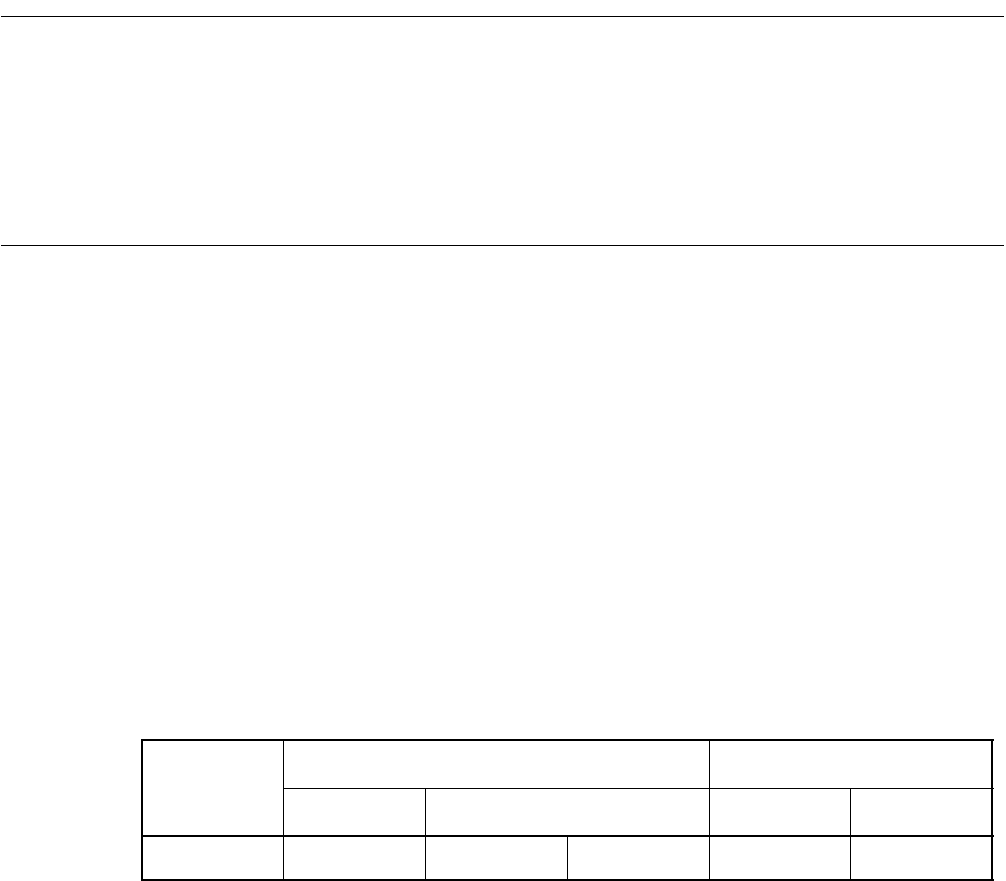
215
CHAPTER 10 UART
10.5 UART Interrupts
The UART has three interrupt causes -- transfer error interrupt, receive data full
interrupt and transmit data empty interrupt:
• When receive data is transferred from the receive shift register to the serial input data
register (SIDR) (receive interrupt)
• When transmit data is transferred from the serial output data register (SODR) to the
transmit shift register (transmit interrupt)
■ Transmit interrupt
When transmission is enabled, writing transmit data to SODR register transfers the transmit data to the
transmit register. The transmit data is converted to serial in the transmit shift register and sent to the serial
data transmit pin (SO).
When the UART is ready to accept next data, the TDRE is set to "1", and an interrupt request (IRQ4) to the
CPU is generated if transmit interrupt request is enabled (SSD: TIE = "1").
■ Receive interrupt
When the data is received normally (stop bit is detected), the RDRF is set to "1".
When an overrun error, a framing error or a parity error occurs, their corresponding error flag bit is set to
"1". These bits are set when the stop bit(s) are detected, and an interrupt request (IRQ4) to the CPU is
generated if receive interrupt is enabled (SSD: RIE = "1").
■ Registers and vector tables for UART interrupts
See Section 3.4.2 "Interrupt Processing" for details on the interrupt operation.
Table 10.5-1 Registers and vector tables for UART interrupts
Interrupt
Interrupt level setting register Vector table address
Register Setting bits Upper Lower
IRQ4 ILR2 (007D
H
) L41 (Bit 1) L40 (Bit 0) FFF2
H
FFF3
H
